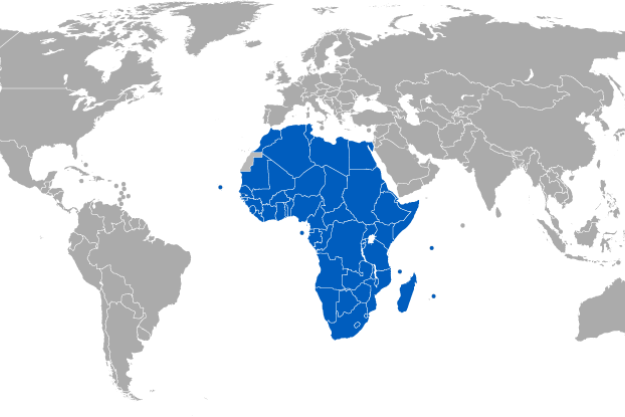
96% of African States Parties now have National Authorities, 22% have implementing legislation covering all key areas of the CWC, and 48% have partial legislation.
The OPCW Director-General, Ambassador Rogelio Pfirter, visited Rabat, Morocco on 27 October 2009 where he participated in the opening session of the 7th Regional Meeting of the National Authorities of States Parties in Africa, and met with senior Moroccan ministry officials. The meeting was organised by the OPCW and Government of Morocco and attracted 50 participants from 36 States Parties in the region*, the most ever for a meeting of National Authorities in Africa.
In his address to the meeting Director-General Pfirter highlighted the strong commitment and support of the African countries for the Chemical Weapons Convention (CWC), and noted that a strong partnership between the OPCW Technical Secretariat and National Authorities is the bedrock for successful implementation of the CWC at the national level. He stressed that effective national implementation should remain a priority for the future and cited the substantial progress made in this regard by Africa – namely, that 96% of States Parties now have National Authorities, 22% have implementing legislation covering all key areas of the CWC, and 48% have partial legislation.
The Director-General commended Africa as well for the great strides it has made toward universality, with 50 countries from the region having joined the CWC, and urged the three remaining African States not Party – Angola, Egypt and Somalia – to join the Convention without delay. In reviewing the progress made in destroying global chemical weapons stockpiles, he also expressed his hope that the Libyan Arab Jamahiriya, which has recently been granted an extension of its own destruction deadline, will resolutely move toward that goal.
The meeting provided a valuable opportunity for National Authority representatives to share experiences, develop contacts and discuss activities to be undertaken in Africa that will further enhance sub-regional and regional cooperation. For the Technical Secretariat, the meeting afforded an opportunity to provide information on the initiatives it undertakes, to get important feedback from the participants on these issues, and to undertake bilateral consultations with the participating States Parties.
During his visit to Rabat the Director-General Pfirter met with Mr Mohammed Ouzzin, the Secretary of State for Foreign Affairs. The Director-General provided Mr Ouzzin an update on the status of implementation of the CWC, including measures taken by the OPCW to strengthen cooperation with States Parties in Africa, and commended Morocco for its implementation of the Convention. Mr Ouzzin assured the Director-General of Morocco’s continued strong support for the CWC and the work of the OPCW.
The Director-General also met with H.E. Nasser Bourita, the Director-General of Multilateral Relations and Global Cooperation in the Ministry of Foreign Affairs; and with Mr M. Hilia Bousselham, Secretary-General of the Ministry of Industry, Trade and New Technologies, who also participated with the Director-General in the opening session of the regional meeting.
* Algeria, Benin, Botswana, Burkina Faso, Burundi, Cameroon, Central African Republic, Comoros, Congo, Côte d’Ivoire, Democratic Republic of the Congo, Eritrea, Gabon, Gambia, Ghana, Guinea, Kenya, Lesotho, Liberia, Madagascar, Mauritius, Morocco, Mozambique, Namibia, Níger, Nigeria, Sao Tome and Principe, Senegal, Seychelles, Sierra Leone, South Africa, Tanzania, Tunisia, Uganda, Zambia and Zimbabwe.
OPCW NEWS 50/2009
